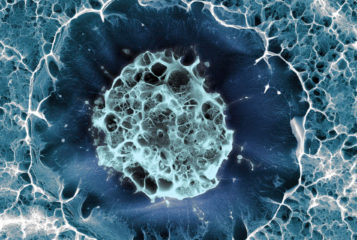| Research with Living Beings
Organised by Keele University Keele Hall, Keele University, Keele, Staffordshire ST5 5BG, UK Thursday 30 June 2011/Friday 1 July 2011 |
 |
Against a background of growing controversy over the use of embryos and primates for research purposes, a two-day conference entitled 'Research with Living Beings', funded by the Wellcome Trust, the AHRC Centre for Law, Gender and Sexuality, and the Centre for Law Ethics and Society (Keele), was held at Keele University. To stimulate a genuine interdisciplinary conservation, the conference organisers — Professor Marie Fox and Dr Marie-Andrée Jacob, both from the host university — selected fifteen presentations in various scientific, sociological, ethical and legal fields. The conference was designed to develop cross-national and multidisciplinary insights into the subjects of research with living beings and their connection to personhood.
The conference began with 'Understanding Good Science' by Sir David Weatherall, the chancellor of Keele University. After highlighting the necessity of involving non-human primates in 21st century biomedical research, he argued that while comparatively new research methods, such as human stem cells, might effectively decrease the need for primates, the timescale involved could not be predicted. The keynote address, 'What is a Research Subject', delivered by Professor Chris Thompson of the University of California, Berkeley, claimed that 'good science' involved two interrelated, but robust parts: scientific and ethical work. To promote ethical work in biomedical science she argued that the 'greater moral universe' principle should be applied to moral and regulatory frameworks for using substitute research subjects, such as human embryos. By this she meant the idea that 'if a sizable proportion of a society cares more for a group of beings than I do, unless there are compelling reasons not to, I should strive to support their efforts, including at a societal level'.
Two leading scientists and an influential UK ethicist contributed to 'Understanding Embryo Research'. Professor Harry Moore (University of Sheffield) and Professor Alan Handyside (University of Leeds), both developmental biologists, argued that developing embryonic stem cell research and PGD was essential to promoting the health and well-being of humans. They said that these 'good sciences' were in urgent need of more donor embryos. Stephen Wilkinson, professor of bioethics at Keele University pointed out that the question of whether embryo research triggered any special ethical issues was not awarded enough significance. Instead of simply answering 'yes' or 'no', he argued that embryonic science required serious ethical consideration. The University of Cambridge's Professor Martin Johnson, and Professor Lynda Birke from Chester University, suggested that the existing line drawn between research subjects and objects was problematic if you attempted to scrutinise the identities of embryos and animals in research. Sarah Chan, of the University of Manchester, argued that the divide between various living beings was not as clear as we might have thought. Thus, an interesting question was raised: 'Is it possible to have a unified framework for research with human and non-human beings?'
Furthermore, increasing research with animal, human and interspecies embryos has provoked legal debates and stimulated engagement with current British and EU regulatory frameworks. By examining the UK regulation of the creation and use of trans-species embryos, Dr Nik Brown and Dr Siân Beynon-Jones, both from the University of York, argued that traditional species hierarchies have been projected onto the British regulatory framework. In turn, the hierarchical position in regulation could eliminate the possibility of applying alternative approaches to humanity and animality. Dr Yoriko Otomo from the University of Melbourne focused her criticism on the EU jurisdiction. She questioned what the nature of a 'good death', in the context of 'good science', might mean, and argued that the European Directive on the protection of animals used for scientific purposes does little to promote this.
The conference ended with a lively roundtable discussion which provided all participants with a chance to contribute their thoughts to issues raised over the two days, and also make future networking plans. The organisers expressed a desire to have more input from policy-makers at future events. This conference was successful in giving a platform for cross-national and multi-disciplinary scholars to have face-to-face exchanges. However it also highlighted the number of unanswered questions in this field, such as: 'Where is the boundary between humans and animals or embryos?'; 'What type of research with these living beings can be labelled as good science?'; and 'How problematic are current British/EU ethical and legal frameworks of research with various living beings?'. These all require further exploration.





Leave a Reply
You must be logged in to post a comment.